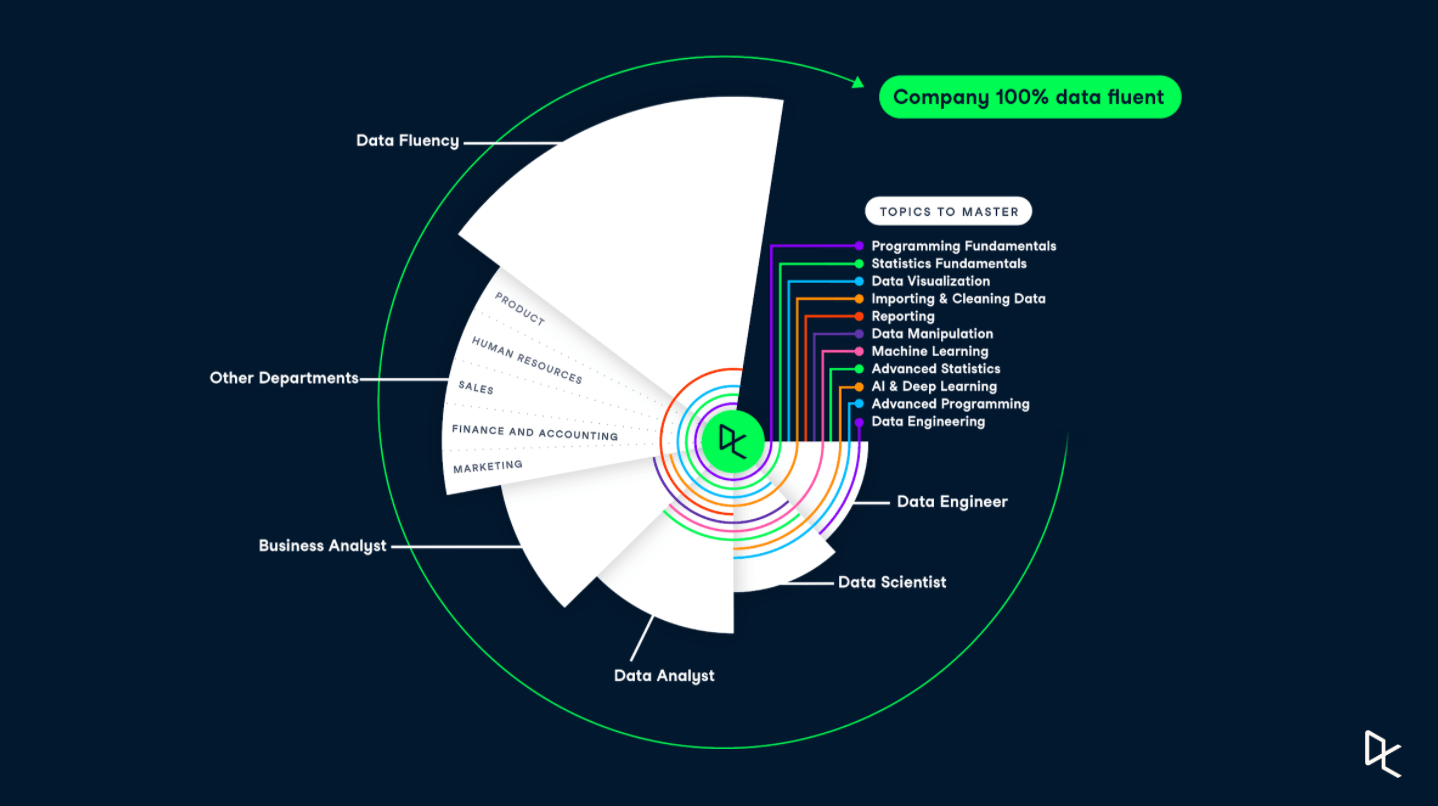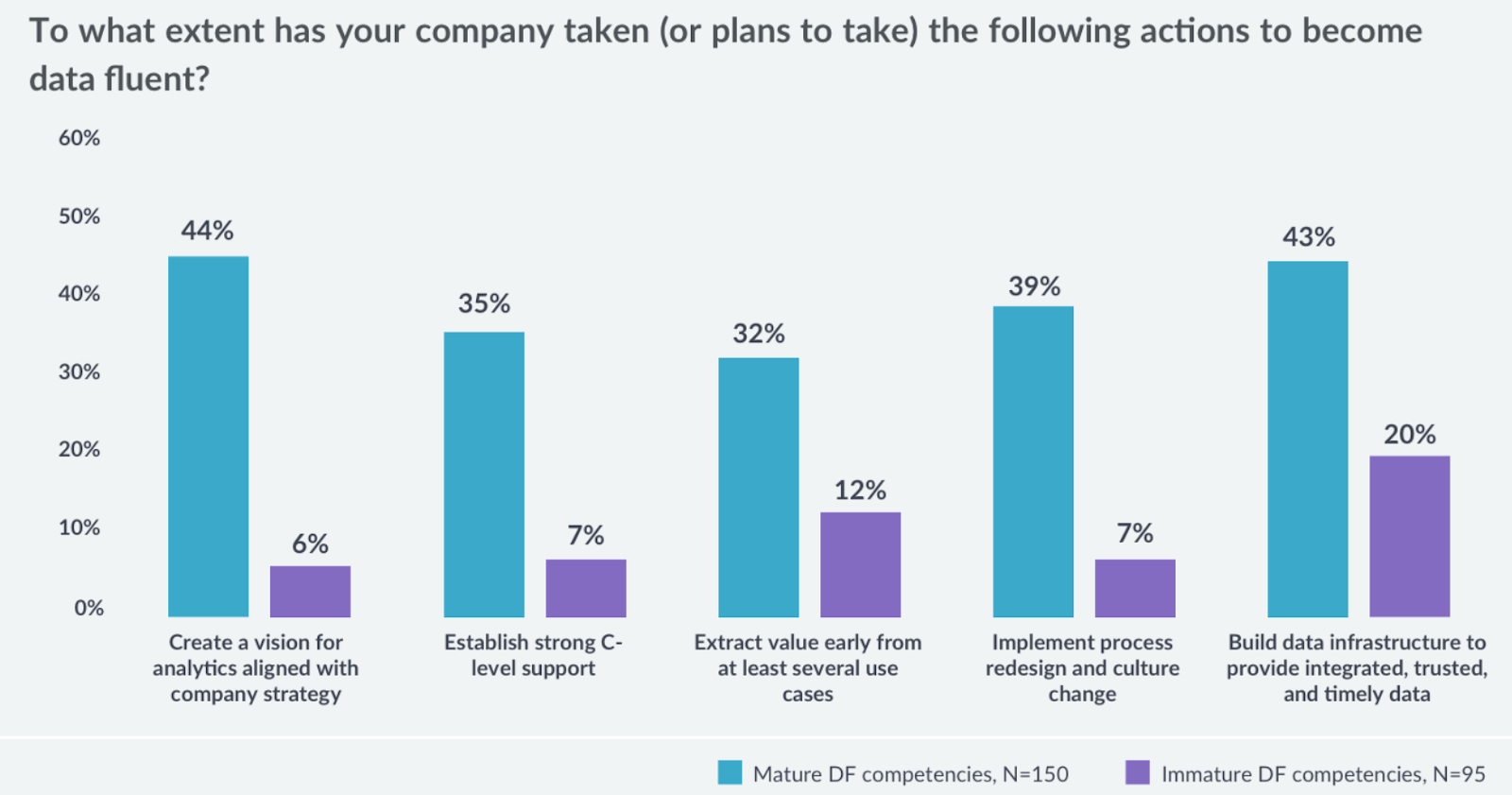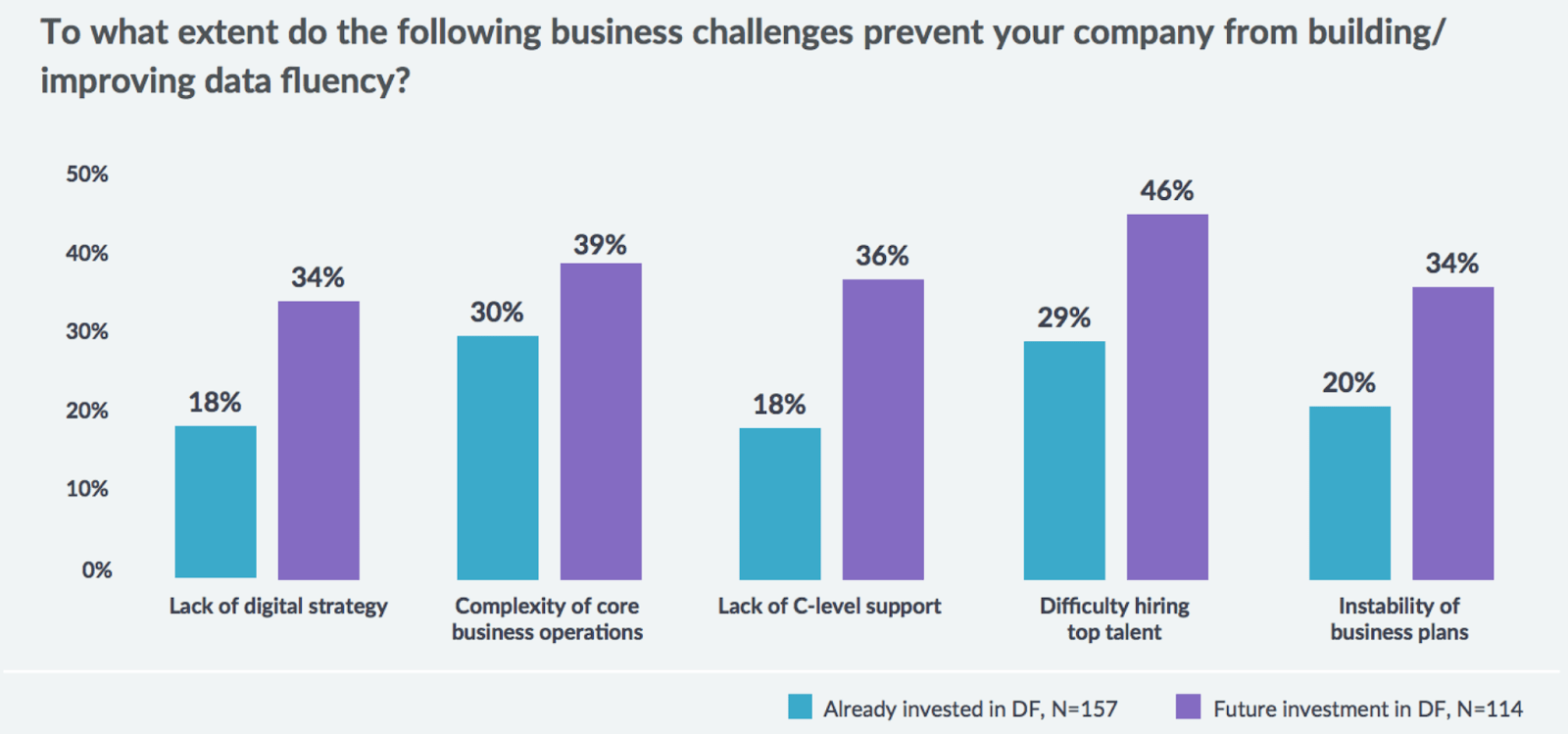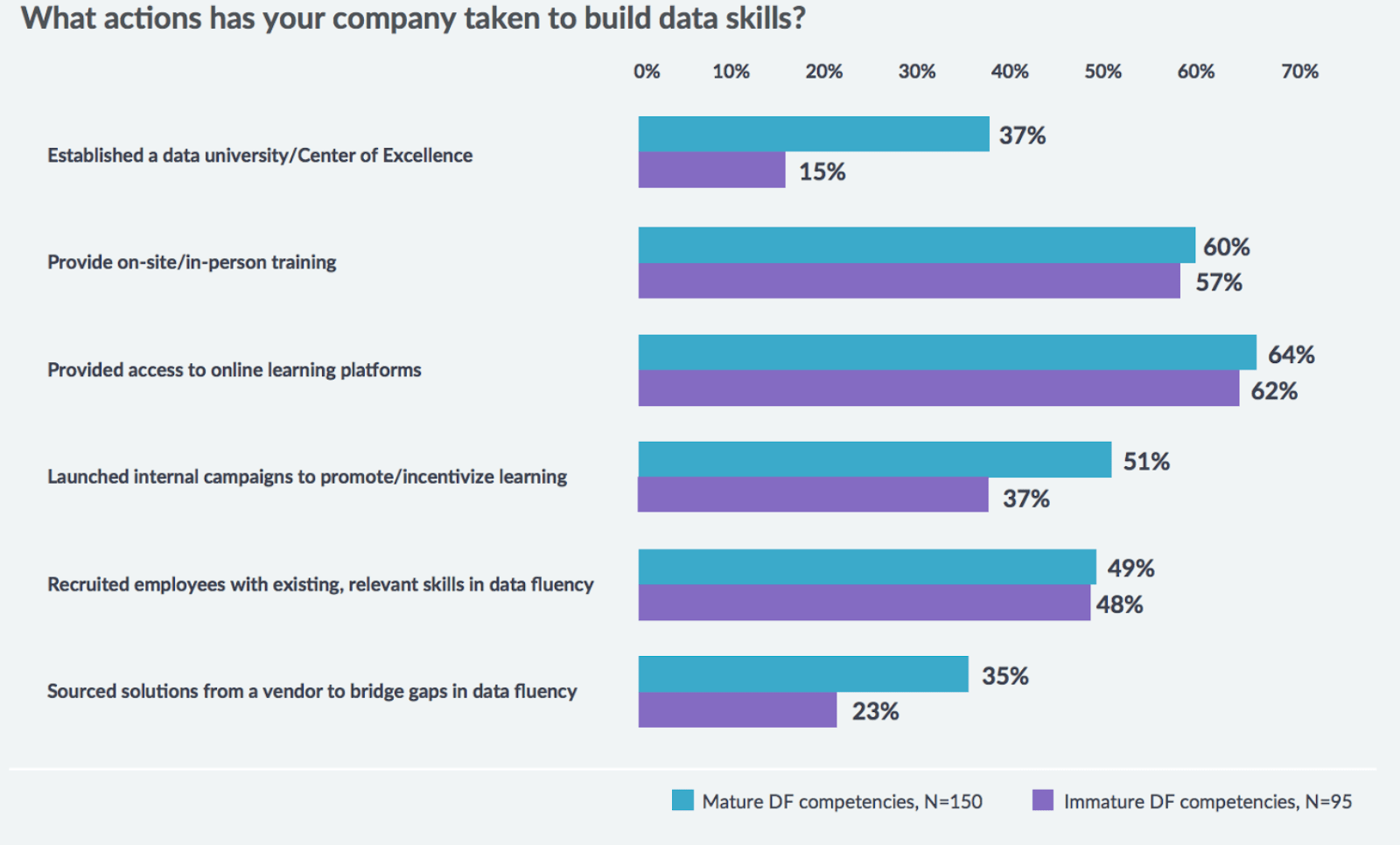Why Data Culture Is a Key Component of Data Strategy
Having a strong data culture is about equipping everyone with the skills they need to leverage data to perform their job well.
Sep 9, 2020 · 5 min read
Topics
RelatedSee MoreSee More
blog
What is Data Culture? A Comprehensive Guide to Being A More Data-Driven Organization
Discover our top tips for creating a data culture in your organization and gaining buy-in from the top down.
Matt Crabtree
17 min
blog
5 Things Business Leaders Need to Know About Data Strategy
Find out how to build a healthy and sustainable data strategy that will move the needle for your company.
Joyce Chiu
10 min
blog
Case Study: How Data Modernization Initiatives Can Help Transform Your Company Culture
Revamp your company culture to generate excitement among employees and attract top talent in data science and analytics.
Joyce Chiu
4 min
blog
5 steps to building a learning culture in your organization
Creating a learning culture that sustains continuous learning is foundational for the ability to succeed in the digital age.
Kevin Babitz
6 min
blog
Four Ways Your Team Can Start Leveraging Data Science
Becoming a data-driven organization can significantly help you make more effective resource allocation decisions, but this requires nurturing and fostering a company-wide data culture. Here’s a rundown of various data science practices that you can quickly adopt to start extracting value from their data, illustrated with specific use cases.
DataCamp Team
7 min
blog
Why Your Digital Transformation Will Fail if You Don’t Have a Data Strategy
Digital transformation starts and ends with data.
Joyce Chiu
7 min





